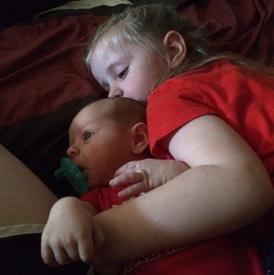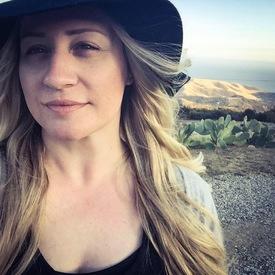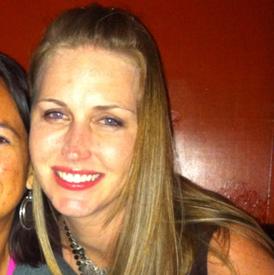Weighing vs measuring food
Replies
-
What is in this OP is exactly why I cannot wait to get a digital food scale.0
-
I weigh everything not only for the reasons you mention but also because it's easier for me to lie to myself if I use volume measurements like cups. If I weigh it out there is no question I'm eating 156 grams of cashews as opposed to trying to squeeze an extra nut or two into a measuring cup. Or if they're little pieces and I can fit more into the cup because they're smaller. It doesn't matter how big or small the individual pieces are, they add up to a certain amount of calories and if I'm going to be successful I have to quite lying to myself.0
-
I too weigh my food (and cry at how little peanut butter I get - I swear 32 grams is barely a tablespoon and nowhere near two!).
But how did you get the info for the rice? When I see rice in grams, it's referencing it dry - before being cooked.0 -
Why are people so stubborn?
Every day on here, there's someone complaining that they aren't losing weight. Immediately the first thing I do, is check their diaries - and time and time again it becomes clear - they are counting the calories, but in imprecise measures. Cups, slices, "1 small fruit", "1 small onion". When anyone says anything, people tend to become quite defensive and again today, it was said that "a cup" is a standard measure...well...
A cup of grated cheese has a very different weight to a cup of finely grated cheese. Measuring 1/3 cup of cheese leaves you open for HUGE mistakes. Every 20g difference means a 100 calorie difference!
I tried this today with an onion - I took what I considered to be a large onion. I put that into MFP - 63 calories. I then peeled and chopped the onion and it fit easily into my measuring cup - MFP calories: 67. Cool. But then I weighed the chopped onion and it was 283g - 119 calories - almost double the initial estimate based on the description of a large onion!
Then I decided to try it with rice. I often see fractions thrown about, so I measured half a cup of brown rice. I filled it exactly to the 125ml line of my measuring cup - 342 calories according to MFP if I use the measure of "half a cup". But I weighed it at the same time and it was actually 110g - that's 407 calories. Almost 60 calories more!
Did the same with peanuts (luckily the result was the other way around for me - and then I ended up eating them all too!). Counted 20 peanuts (MFP = 117 calories), weighed them, 12g = 70 calories.
What I'm getting at is that these "small" things which seem insignificant and probably won't make a difference may make a huge difference at the end of the day. In just four foods I tried, the difference was around the 260 calorie mark - for many people, the difference between maintenance and losing weight. (May I also add - for those who say, "but I've always done it like this and lost weight" - as you start off, these calories are insignificant in the bigger picture, but as you lose weight, the calories become a larger and larger proportion of your diet and that's when it becomes more important to be accurate).
I use the "imperfect" measures for the times where I'm out and I simply don't have my scale close to me. Otherwise EVERYTHING is weighed out - and it's worked without a hitch.
"Roughly" weighing things (or simply not adding things because they are healthy - e.g. tomatoes) could make huge differences. If it passes your lips and it has any type of calorie content, LOG IT ACCURATELY!!! Only then can you definitely rule out diet...
I love this post and I agree. I weigh everything. For instance, my bag of baby carrots shows that 85g is the portion size, but then says approx. 14 carrots. If you just count out the 14 carrots, you will go over that 85g. I know one portion is only 35 calories but it adds up if quickly if you do this consistently.0 -
This is a great post! definitely going to start weighing my food, thanks so much!0
-
You have a great point about differences in calorie counts. I got a food scale as a gift when I got married. I rarely used it. Since Ive been on MFP, I use it daily. One thing surprising thing I use it for is chips. It will say 13 chips (1oz) is 140 calories. Well, is that medium size chips, broken chips, big chips, imaginary chips, hell I dont know what. But one ounce is always one ounce.
LOL! this^^^ I would eat two small chips and call it "1 chip." I really need to start weighing my food if I want to get anywhere anytime soon. This is a good topic and I'm considering to buy a digital scale hopefully soon.0 -
So I was reading this post, apparently again, since I realized I had responded when it was first written. I have since gotten a digital food scale and LOVE IT!! It's so nice knowing that I'm being at least that much more accurate and I go through much fewer measuring utensils in a day. I got an EatSmart one from Amazon for $25 and it's perfect.0
-
The weight of the onion is to be weighed before you chop it up not after. You are inflating calories this way.I tried this today with an onion - I took what I considered to be a large onion. I put that into MFP - 63 calories. I then peeled and chopped the onion and it fit easily into my measuring cup - MFP calories: 67. Cool. But then I weighed the chopped onion and it was 283g - 119 calories - almost double the initial estimate based on the description of a large onion!
Just like you weigh meat before cooking not after.0 -
[/quote]
The weight of the onion is to be weighed before you chop it up not after. You are inflating calories this way.
Just like you weigh meat before cooking not after.
[/quote]
Typically you don't weigh meat before. A serving of chicken is approximately 4 oz raw or 3 oz cooked. Most databases use cooked meat values (according to a few articles I've read). When you cook meat, you lose some of the fat.0 -
You're correct I discovered this last night and surprisingly it was with cheese. So from now on I'll be using my scale.0
-
Great post. I learned this lesson when I bought a food scale.
I still get a little teary-eyed when I weigh out 32g of peanut butter, and remember what I used to call 2 tablespoons.
Nothing like the realization you were eating 500 calories more everyday than you thought you were.0 -
I don't have a really good scale to weigh food, so I measure. However, I usually do not eat my exercise calories back to balance things out. Seems to be working so far, but probably will need a better scale the closer I get to my GW since it will become harder to shed those last few pounds.0
-
The weight of the onion is to be weighed before you chop it up not after. You are inflating calories this way.
Just like you weigh meat before cooking not after.
Typically you don't weigh meat before. A serving of chicken is approximately 4 oz raw or 3 oz cooked. Most databases use cooked meat values (according to a few articles I've read). When you cook meat, you lose some of the fat.
On the weight of the onion, weighing it after you chop it is fine since there is no change in moisture content or anything else occuring during the chopping. If you are weighing it raw, weighing it chopped or whole shouldn't make a calorie difference, except if you discard part of the onion while chopping, then your weight would be off.
As for weighing meat, to be the most accurate, you should weigh it BEFORE cooking as the raw weight is much more accurate than the cooked weight. In the MFP database, if you put in chicken breast, raw or ribeye steak, raw, etc. it is easy to find these measurements that use raw instead of cooked. The reason for weighing anything (meat or veggies) raw is that when you cook something, the final weight is determined by how much moisture is lost or gained, which can vary greatly. You really aren't losing a ton of fat when you cook most items. The only time I really make an exception to the pre-cooked and after cooked weight is ground meat when I cook the meat and drain AND rinse the meat. Then, I look for an entry that describes that process. In that case, you are losing a good deal of fat through the cooking and draining and rinsing process. But, if you start with boneless skinless chicken, there's really very little fat to lose during cooking.
A great example of why raw weight is better than cooked weight is steak. You could start with an 8 oz ribeye and have it cooked medium-rare and weigh 6.5 oz cooked and then go ahead and cook it further to make it well done and the final weight could be 5 oz cooked. Track it raw and you are tracking nearly 450 calories; using one of the "cooked, grilled" entries, the medium rare 6.5 oz steak comes out to about 439 calories but the well done 5 oz cooked steak only comes up as 336 calories. That's a huge discrepency for that one piece of meat when the only thing that changed was how much moisture was lost. The same happens with pork chops and chicken and lots of foods. If you cook yours and it comes out "dry" and weighs an ounce less than mine does, but we both started with the same size chop, are you really getting less calories than me? Nope, you're just getting less moisture.
Just being off by a little bit here and there can quickly lead to frustration and "stalls".0 -
100% true.
Even though 28g of hummus makes me so very sad.0 -
Wow. Never really thought of it that way before. I always just measure by volume, but I wouldn't be surprised if I've been over-eating by mistake. Time to buy a food scale!0
-
THANK YOU!
The other one that bugs me is weighing raw meat versus cooked. Unless the specific entry states the measurement is from cooked, a 4oz raw steak has the same amount of calories when it is cooked down to 3oz. However, if you enter it into your diary as 3oz, you're under counting 1/4 of the calories.0 -
Eye opening. Not sure how this got by me! I weigh most things but measure a few things. No more!0
-
This thread has convinced me to change my ways. Time to dust off that scale and actually use it.0
-
I agree. A food scale is a must.0
-
I always weigh my food, and find it very annoying when someone has entered into mfp data base, "small tomato, medium apple, large onion, slice of bread, cup of rice" etc
I try and correct where possible, in grammes0 -
Weigh to go. Great post.
I lol'd
Anyway, I always, always, always weigh every thing. It's easier too cause then I am only dirtying the plate I put the food on, no measuring cups to wash. I even weigh out my milk into my coffee(122 grams per 1/2 cup) to avoid extra stuff to wash, hehe.0 -
I weigh my food but weighing my cereal was impossible. I poured in what looked like a ton of cereal and the scale barely moved. I measured it and it was 1 1/2 cups, so that's what I put down in my diary.0
-
To make it a little less daunting for people, I can suggest a bit of a compromise:
Weigh all calorie-dense foods, estimate with the lighter stuff.
What I mean by this is with spinach (7 calories/cup), celery, etc. an over- or underestimation isn't going to be reflected by a large calorie difference.
But with cheese, sauces/dressing, nuts, hemp hearts, yogurt, milk, cereal... it matters.
This is working for me. That said, if I stall out/plateau, you better believe I'm going to get more anal-retentive about weighing my food.0 -
bump... been having a debate with myself on this recently0
-
Great post. I learned this lesson when I bought a food scale.
I still get a little teary-eyed when I weigh out 32g of peanut butter, and remember what I used to call 2 tablespoons.
HILARIOUS! I've been there!0 -
I too weigh my food (and cry at how little peanut butter I get - I swear 32 grams is barely a tablespoon and nowhere near two!).
But how did you get the info for the rice? When I see rice in grams, it's referencing it dry - before being cooked.
I'm a little OCD. So I weighed out my dry rice, weighed my rice pot, and cooked the rice. After the rice was cooked, I weighed the resulting rice, and used the ratio to figure out the calories.
For example: (numbers made up for sake of easy math)
100g of dry rice = 400g of cooked rice.
100g of dry rice = 200 calories (yes, this is off, bear with me)
400g cooked rice = 200 calories
150g cooked rice in my lunch = 75 calories0 -
Great post. I learned this lesson when I bought a food scale.
I still get a little teary-eyed when I weigh out 32g of peanut butter, and remember what I used to call 2 tablespoons.
Just ordered a scale just for that^^^^^ among other items.0 -
This month I got serious about my diet and began logging on MFP. In addition, I bought an inexpensive digital food scale at Walmart. I believe it's made all the difference!0
-
Thank you for this post.. I have a great food scale but have really only been weighing my meats and stuff, however things like 1/2 cup of nuts, 1/2 cup cottage cheese, or even 1 cup of cereal I have just been using measuring cups. I would like to be doing this right but to be honest I have no idea what 1/2 a cup is in grams. If anyone has a link to some charts for this info it would be great. Thanks0
-
I have an awesome digital food scale that I use all the time. If a food is solid, I weigh it. If it's liquid, I measure it.
I don't carry it around with me though. I only use it at home.
Another food that is so important to weight vs measure is cereal.
Totally agree if it's solid i weigh it, if it's liquid i measure it.0
This discussion has been closed.
Categories
- All Categories
- 1.4M Health, Wellness and Goals
- 398.2K Introduce Yourself
- 44.7K Getting Started
- 261K Health and Weight Loss
- 176.4K Food and Nutrition
- 47.7K Recipes
- 233K Fitness and Exercise
- 462 Sleep, Mindfulness and Overall Wellness
- 6.5K Goal: Maintaining Weight
- 8.7K Goal: Gaining Weight and Body Building
- 153.5K Motivation and Support
- 8.4K Challenges
- 1.4K Debate Club
- 96.5K Chit-Chat
- 2.6K Fun and Games
- 4.8K MyFitnessPal Information
- 13 News and Announcements
- 21 MyFitnessPal Academy
- 1.6K Feature Suggestions and Ideas
- 3.2K MyFitnessPal Tech Support Questions




























